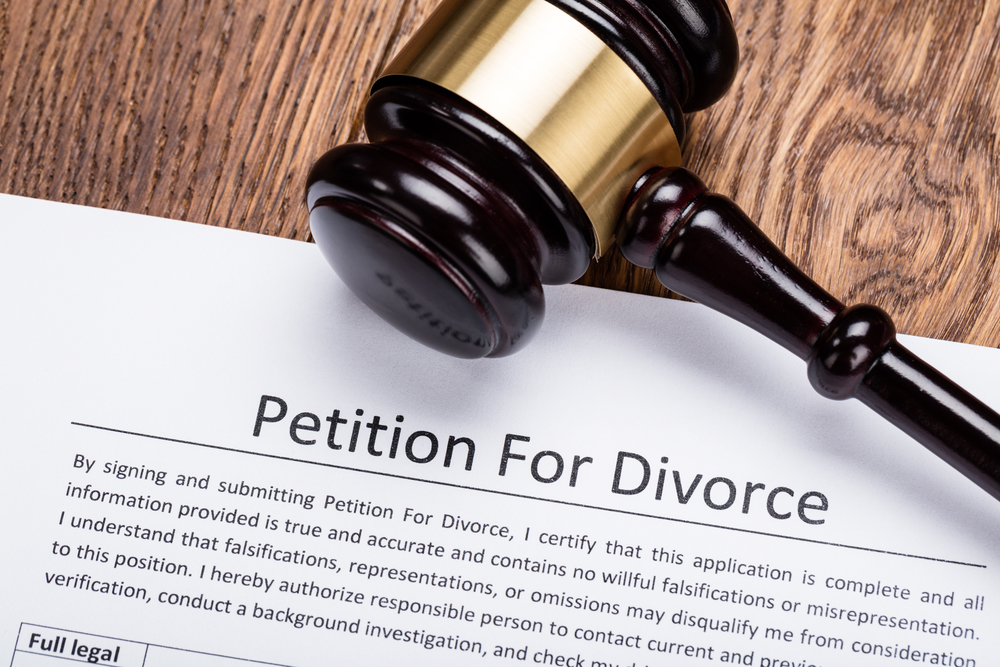 If you’ve been served with divorce papers, you may be wondering what sort of action you need to take now. Do you simply accept the filed divorce petition as your spouse has it? Or do you need to file paperwork of your own? What many people don’t know is that there are two types of forms you can file in response to a Petition for Dissolution of Marriage: an Answer to the Petition, and a Counter-Petition for Dissolution of Marriage. Here’s what you need to know about these forms and their role in your divorce.
If you’ve been served with divorce papers, you may be wondering what sort of action you need to take now. Do you simply accept the filed divorce petition as your spouse has it? Or do you need to file paperwork of your own? What many people don’t know is that there are two types of forms you can file in response to a Petition for Dissolution of Marriage: an Answer to the Petition, and a Counter-Petition for Dissolution of Marriage. Here’s what you need to know about these forms and their role in your divorce.
The Answer to the Petition
When you receive a Petition for Dissolution of Marriage, you need to file a written response with the court. This is basically a written notice of your positions on each paragraph or statement in the filed Petition. Essentially, it is your opportunity to agree to, object to, admit to, or deny what is being stated or requested by your spouse.
Many people may file the Answer, believing this is enough to protect themselves throughout the divorce proceedings. However, from a legal standpoint, this may not always be true, and it is usually best to file both an Answer and a Counter-Petition.
Counter-Petition for Dissolution of Marriage
While the Answer to your spouse’s Petition may allow you to agree to or object to the requests they’ve outlined in the initial Petition, it does not allow you to outline your own requests to the court. This is where a Counter-Petition comes in. The Counter-Petition allows you to outline your requests for “affirmative relief,” or what you would like to see happen in regards to the various issues and categories that make up your case.
If you don’t file a Counter-Petition, and you can’t reach a settlement agreement with your spouse outside of court, your divorce case will go to trial. If this happens, and you have not filed a Counter-Petition, it becomes much more difficult to present your side of the case to the judge, and you may find it harder to make particular requests regarding the issues of your divorce case.
For example, let’s say your spouse requests alimony in their initial Petition. You file an Answer stating that you disagree, and don’t believe you should be paying alimony to them. While this might give you the opportunity to argue against making alimony payments, it doesn’t provide you with the opportunity to request alimony of your own.
Such a request—as well as requests pertaining to possession of the marital home, division of property, and so on—would be made in the Counter-Petition. While failing to file the Counter-Petition doesn’t necessarily eliminate your ability to make such requests, it can make the process much more difficult.
Child Custody Issues
It’s important to note that issues pertaining to child custody, visitation, parenting plans, and so on, are not subject to the rules mentioned above. Regardless of whether you file only an Answer, or a full Counter-Petition, the judge is still required to consider the best interests of the child or children.
So, even if you didn’t file a Counter-Petition stating that you would like to have full custody of your children, the judge will still consider all aspects of your case, and your and your spouse’s lifestyles, to determine what the best custody arrangement will be for the children.
When and How to File
Florida law requires you to file a written response to a Petition for Dissolution of Marriage within 20 days of being served. This should give you enough time to find a divorce attorney and go over the statements and request made in your spouse’s Petition.
Once you have done this, we strongly recommend that you file both an Answer to the Petition, as well as a Counter-Petition. Usually, it is simplest and easiest to file both of these documents at the same time. These forms can be filed at a Florida Clerk’s office, and there is a filing fee associated with a Counter-Petition, which is due at the time you file your paperwork.
If you’ve been served with a Petition for Dissolution of Marriage, please contact our law firm right away. Our experienced divorce attorneys will go over the Petition with you in great detail, then help you to complete an Answer to the Petition, as well as a Counter-Petition to ensure that your rights and your assets are properly protected throughout the divorce proceedings. Contact us today to set up an appointment with an attorney.